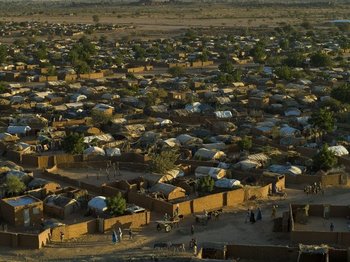For World Humanitarian Day 2015, we asked two humanitarians, one at the beginning of their career and one with years of experience, what motivated them about humanitarian action. Here Henry Ashcroft, a Logistics Analyst with the WFP in Lebanon talks about starting a career in humanitarianism; read what Maurice Herson thinks of aid work after years of experience here.
Before starting my first humanitarian post earlier this year in the WFP Logistics Unit in Beirut I was very aware of the many criticisms leveled at this sector, and the UN in particular, most of which often revolved around accusations of bureaucratic inefficiency and a lack of ‘commercial’ drive and expertise.
I also knew that both ‘development’ and ‘humanitarian’ work are now their own industries. There is competition within them, and large amounts of resources are devoted towards theorising, establishing best practices and identifying areas where change is required. These are sectors that have opened themselves to severe evaluation, and have faced subsequent criticisms. With this in mind, when I took up my post I wanted to make sure that any work that I devoted myself to would have a quantifiably beneficial impact: that my efforts would be optimised in their real effect.
There is obviously a degree of selfishness in this motivation, and I am fully aware of the possible accusation that such drive is more about the development/humanitarian worker validating their own privilege than it is about the ‘beneficiaries’. I also know there is a lot of humanitarian literature around this matter, and I am fully aware of the problems it throws up in the current humanitarian system. Still, I believe that the desire to ensure that work, efforts and resources are not wasted, and that whatever is done will have the maximum possible beneficial impact, is a sound principle.
All of this was a large part of the attraction of humanitarian work to me, and part of what has made my time working as part of WFP so engaging. It is a dynamic sector, one that is forced to evolve and improve by its responsibility to its shareholders (aid recipients and donors alike). And also one faced with new challenges, such as current trends of population displacement and continuous low-intensity conflicts (alongside larger scale conflicts) that decrease resilience and create large-scale emergencies.
Despite the obvious problems in humanitarian operations, from my experience there is a clear feeling of a sector full of individuals determined to evolve practices and be as effective as possible: to combine a genuine will to deliver a humanitarian service, with a hard-nosed, scientific approach that will ensure it is done effectively and with appropriate accountability to donor and, most importantly, to aid recipients.

Photo credit: Flickr/UNHCR - F. Noy
So when I look back at those criticisms of inefficiency and a lack of “commercial” drive, I feel they point to a false dichotomy. “Commercial” and “humanitarian” are not mutually exclusive, especially in Logistics operations and supply-chain management. Humanitarian ‘effectiveness’ does not have to preclude corporate ‘efficiency’ and development - in the best of the humanitarian world, the satisfaction of seeing the job done well is the most humanitarian motivation possible.
There is a buzz in the sector, a buzz of drive, self-evaluation and both academic and pragmatic critiques to help fix problems.
I would not deny that there are gaps between words and actions, and I am under no illusions as to how far there is to go: but whatever the criticism, there is a buzz in the sector, a buzz of drive, self-evaluation and both academic and pragmatic critiques to help fix problems. This is the most interesting part of it, the most engaging and challenging part of humanitarian work - how to translate will into the most effective and efficient operation possible. There is a job to do, and the real drive is to see that job be done well.
On an operational level, from my experience so far, this attitude is exemplified most powerfully in the Syrian members of staff, who work tirelessly to ensure the operation is running smoothly in the midst of great personal strain and struggles, driving to work through insecure areas full of checkpoints and usually with only an hour or two of electricity per day, in the height of summer, and no guarantee of a decent water supply. Amidst all this, their attitude is one of dedication to the service they provide and dedication to improving their own ability to provide it, always gearing themselves towards self-improvement for the sake of the operation.
Indeed, the advice that has stuck with me the most since I started with WFP has been to do my job, and for the operation to be run, as if it was one’s own company. Considering that humanitarianism is now something of an industry in its own right, that competition can drive organisations on to adapt, evolve and provide the best possible service for those who need it.